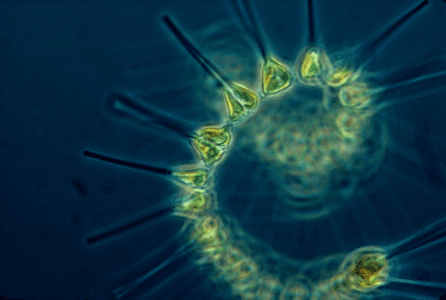Crucial Role of Oceans in Oxygen Production
Over the years, much has been explained about the importance role of trees in emitting oxygen into the atmosphere. Without this oxygen, humans and most life on Earth would be unable breath and become extinct. While there has been plenty of discussion around trees, the other sources of oxygen on Earth have seemingly been ignored. Science has shown, that rainforest oxygen production only accounts for approximately 28% of the oxygen we breath. The origin of the remainder oxygen is almost all sourced from the Earth’s oceans (70%) [1,2]. Despite this, education regarding ocean pollution hasn’t yet hit the mainstream, even though it is crucial that this knowledge be understood by all – otherwise our species could be forced into more abnormal times.
The main concern when it comes to ocean health is the rising ocean temperature which is currently being caused by climate change. This rising temperature causes a decrease in the rate of mixing between surface water and deep nutrient-rich ocean water [3]. This decrease in surface nutrients impacts the most important oxygen-producer in the ocean – phytoplankton. Phytoplankton are small ocean creatures which convert carbon dioxide into oxygen via the well-known photosynthesis method. However, research has shown that a 6oC increase in the ocean temperature could disrupt this photosynthesis process, causing a drastic decrease in the amount of oxygen being produced [4]. This fact demonstrates the importance of taking action now, as scientists believe that the 6oC increase could occur within 80 years from now.
Another danger to the performance of phytoplankton is the increasing acidification of the ocean [5]. Oceans absorb 40% of carbon dioxide in the atmosphere, and so, as the amount of carbon dioxide in the atmosphere increases, so to does it increase in the oceans. Ocean acidification is the result of this carbon dioxide increase and is known to negatively impact calcifying plankton [6]. These plankton use a calcifying process to create their shells, however, high acid concentrations will prevent them from doing this, instead causing them to dissolve and die.
Ultimately, efforts must be made to raise awareness regarding the great importance of the many roles that the ocean plays. Action should be taken to further reduce the impact of humans on climate change, so that the ocean temperature and acidic level can remain within the limits of safety.

References
- https://www.nationalgeographic.org/activity/save-the-plankton-breathe-freely/
- https://www.onegreenplanet.org/environment/plankton-under-threat-tiny-life-in-major-need-of-your-help/
- https://medium.com/climate-conscious/how-the-loss-of-phytoplankton-could-lead-to-our-demise-8f9c91b937a8
- https://www.sciencedaily.com/releases/2015/12/151201094120.htm
- https://theconversation.com/acid-oceans-are-shrinking-plankton-fuelling-faster-climate-change-121443
- https://www.nature.com/articles/s41598-020-58501-w
- https://pixabay.com/photos/phytoplankton-plankton-1348508/


 by
by